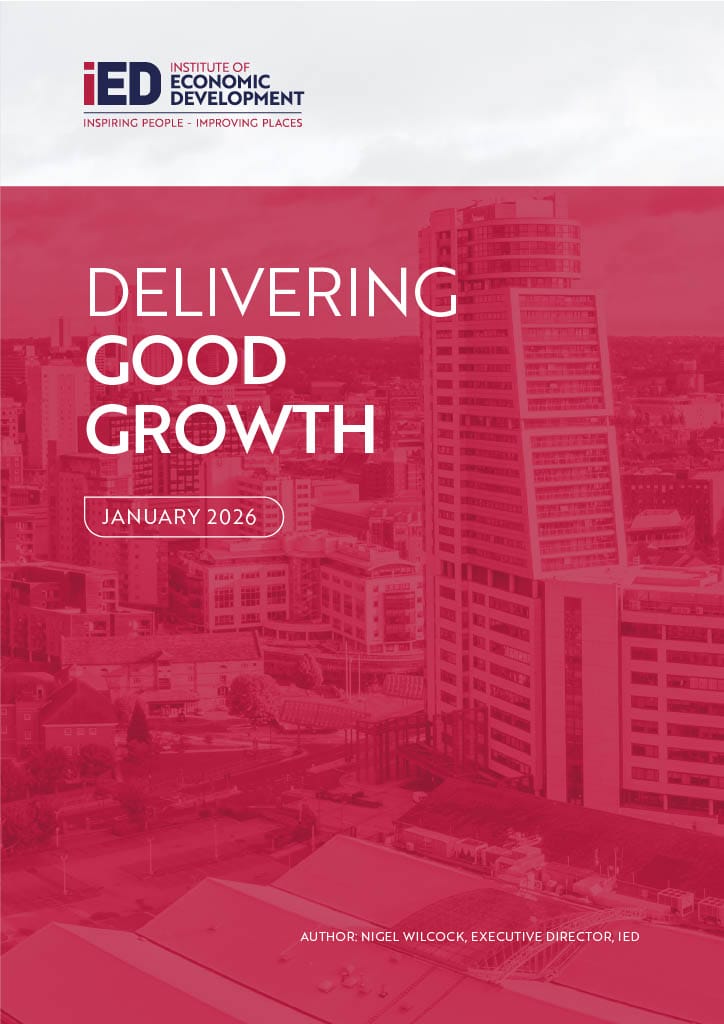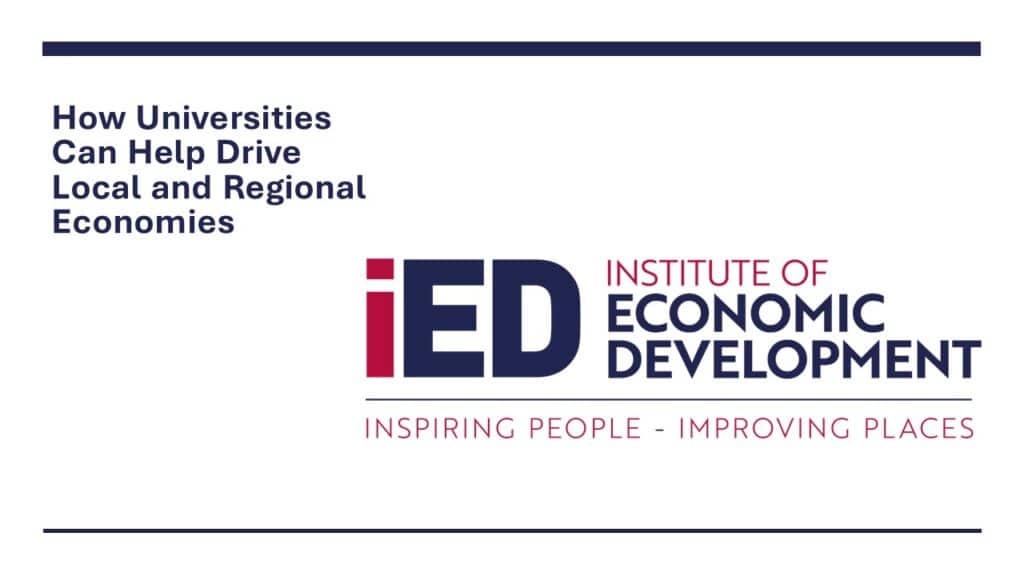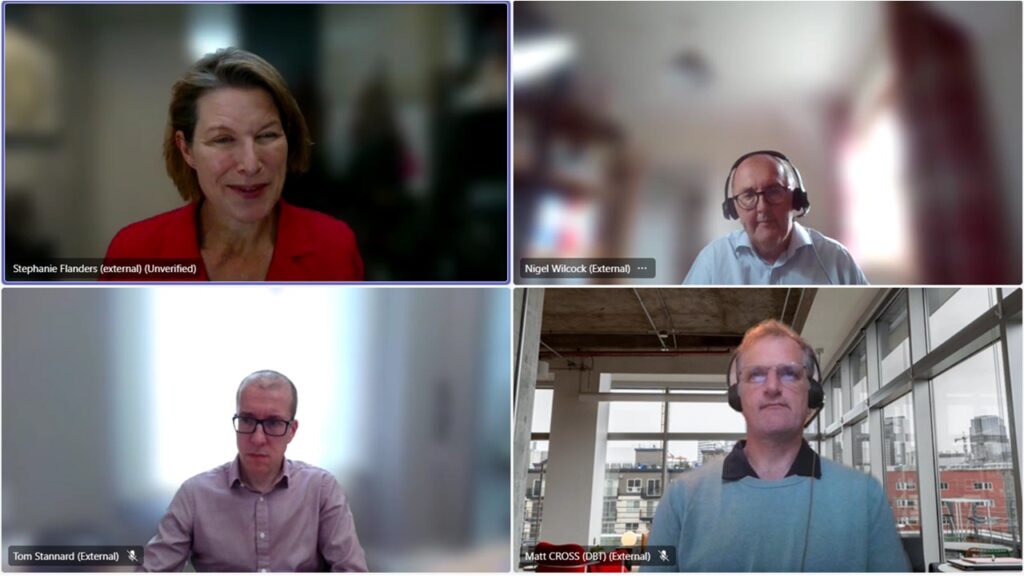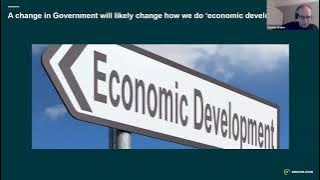Insights
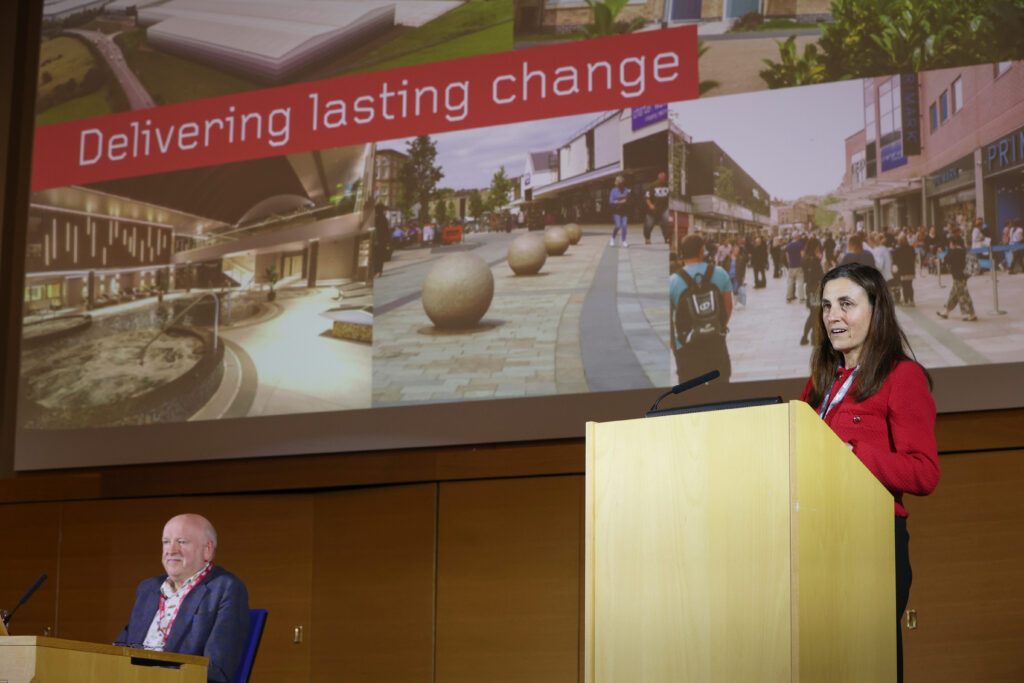
Manifesto
In the run up to the 2024 General Election, the Institute of Economic Development (iED) launched a “radical agenda for change”, as it stepped up its work for councils to be given statutory powers over economic development.
The Institute has an overarching call for economic development to be formally recognised as a statutory function provided by local authorities in Grow Local, Grow National, and a series of recommendations, sitting within six supporting pillars, which are deemed “critical for success”.
Webinar Recordings
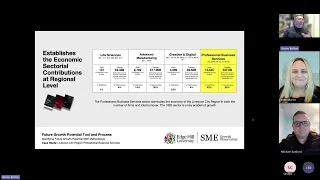
IED Partner Webinar Edge Hill University approach to identifying businesses with growth potential
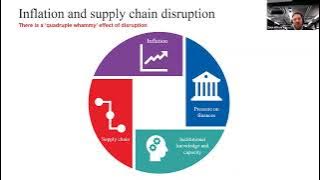
Delivering in Uncertain Times: real impact of inflation+supply chain disruption on econdev projects?
Check out a list of publications/reports we ourselves or our Partners have published which members may find useful.
Sign up for the monthly iED Bulletin
Stay up to date with our latest news, events, bulletin, and new opportunities.





